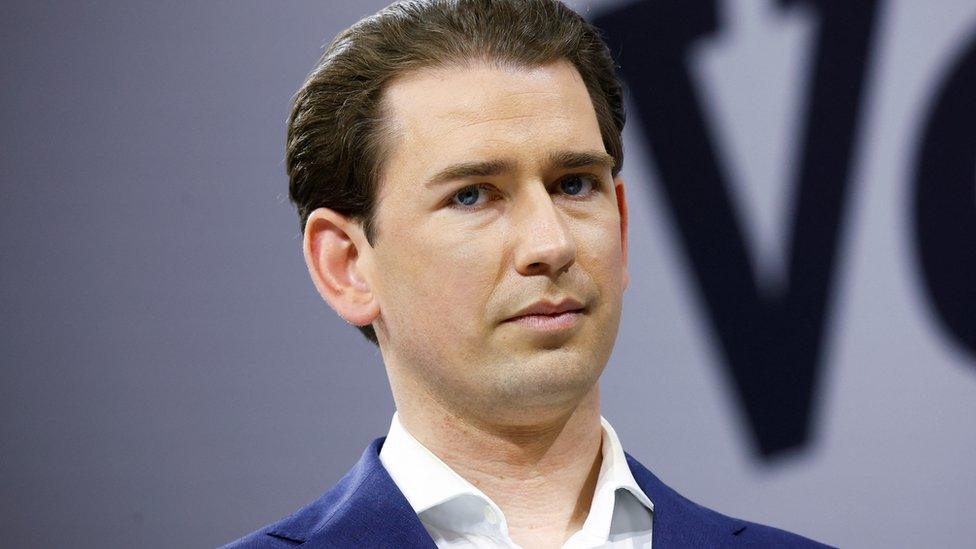Austrian ex-minister Karin Kneissl moves to Russia with her ponies
- Published
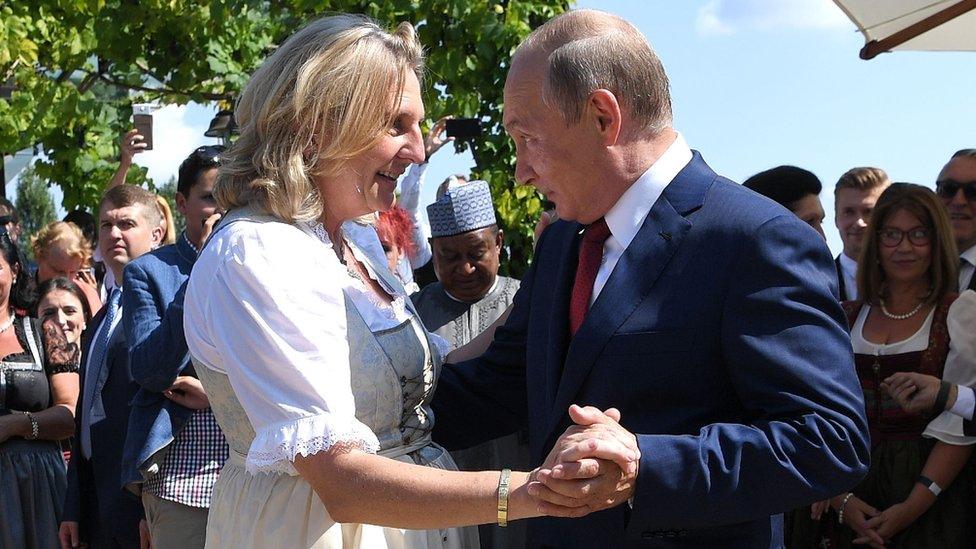
Karin Kneissl was pictured dancing with Vladimir Putin at her wedding in 2018
Austria's pro-Russian former foreign minister Karin Kneissl is moving to St Petersburg, along with her two ponies.
Karin Kneissl had been living in Lebanon. She left government amidst a scandal that engulfed the far-right Austrian party that appointed her.
The ponies were flown to St Petersburg on a Russian military transport plane from Syria, she said.
Ms Kneissl said she had decided to move to Russia to run a think tank at St Petersburg University.
"I co-founded the Gorki centre and manage it," Russia's state-owned Tass news agency quoted Ms Kneissl as saying. "Since there is a lot of work there and it requires a lot of attention, I cannot do this in passing. I decided to move to St Petersburg for this work."
Asked by the BBC about her move to Russia's second city, she declined to comment. But she said on social media that living in Lebanon had been a temporary solution "to survive" and while she was commuting to Russia to teach.
Ms Kneissl is a noted animal lover. She said on social media that, because of sanctions against Syria and the security situation there, using a military transport plane was her only option to bring her ponies and other belongings to Russia.
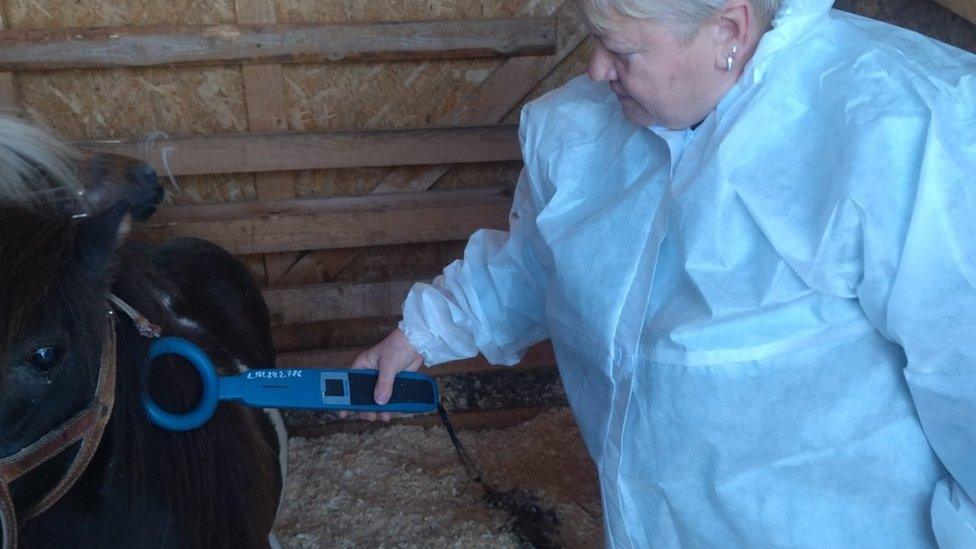
Vets from the Leningrad region checked the two ponies and said they were healthy
The Leningrad region's veterinary department said the ponies had been examined and placed in quarantine.
Karin Kneissl was Austria's foreign minister from 2017 to 2019. She was an independent, chosen for the job by Austria's far-right Freedom Party which is known for its close contacts with Russia.
She made headlines in 2018, when she invited Vladimir Putin to her wedding in southern Austria. Pictures were released showing her dancing with the Russian president.
Ms Kneissl made the announcement of her move to Russia in Vladivostok, where she was attending the Eastern Economic Forum, an annual event that aims to encourage investment in Russia's far east.
Listening to Mr Putin's keynote speech to the forum on Tuesday, she could be seen apparently falling asleep as the forum cameras panned to the audience.
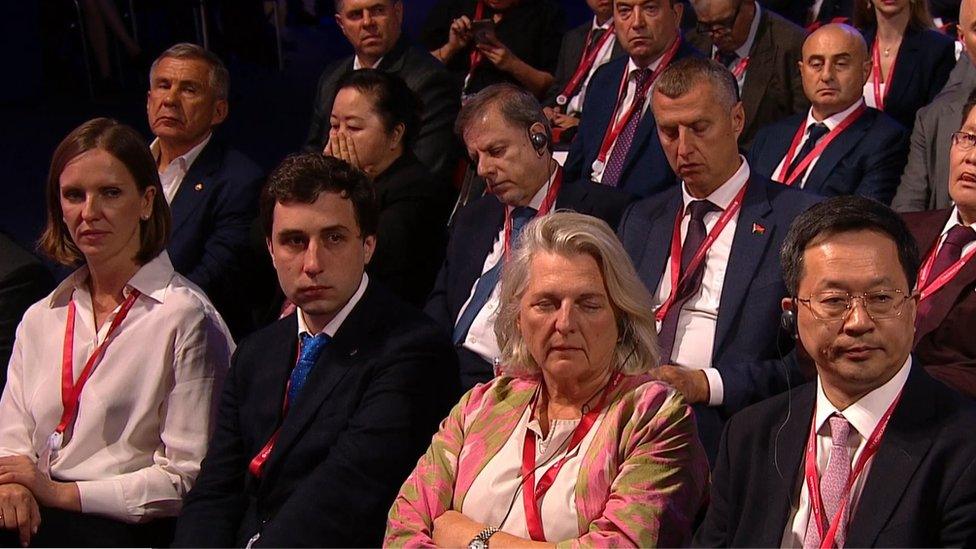
Karin Kneissl was caught dropping off during Vladimir Putin's keynote speech in Vladivostok on Tuesday
Karin Kneissl is a regular commentator on Russian state-backed news channel RT and was a board member of state-owned oil company Rosneft.
She left Austria in 2020, saying she had been the victim of death threats and a de-facto ban on working in the country.
She had been part of a government coalition between the conservatives and far-right Freedom Party (FPÖ) which collapsed in 2019, when FPÖ leader Heinz Christian Strache was caught in a sting video in a villa in Ibiza.
He was filmed apparently promising government contracts to a woman posing as the niece of a Russian oligarch.
The Freedom Party is currently in opposition, but has been leading the opinion polls for months, making it a strong contender to enter government again in elections scheduled for next year.
The party's new leader, Herbert Kickl, has criticised EU sanctions imposed on Russia as a result of the war in Ukraine, blaming the sanctions for the rise in the cost of living.
Mr Kickl was interior minister in the coalition government that Karin Kneissl was part of.
There was concern at the time among Austria's EU and Western allies about Mr Kickl's ties with the Kremlin.
Peter Gridling, who was Austria's spymaster between 2008 and 2020, told the Financial Times that he had been "very worried about the Freedom Party's contacts with Russia", external.
He also warned that the party had still not cut its links with the Kremlin.
"They have not changed," he told the FT. "They still have contact with Russia. Intelligence is a long game - and the Russians have a very long perspective."
The Austrian capital, Vienna, has a long tradition as a centre of espionage, which continues up to the present day.
- Published24 May 2019
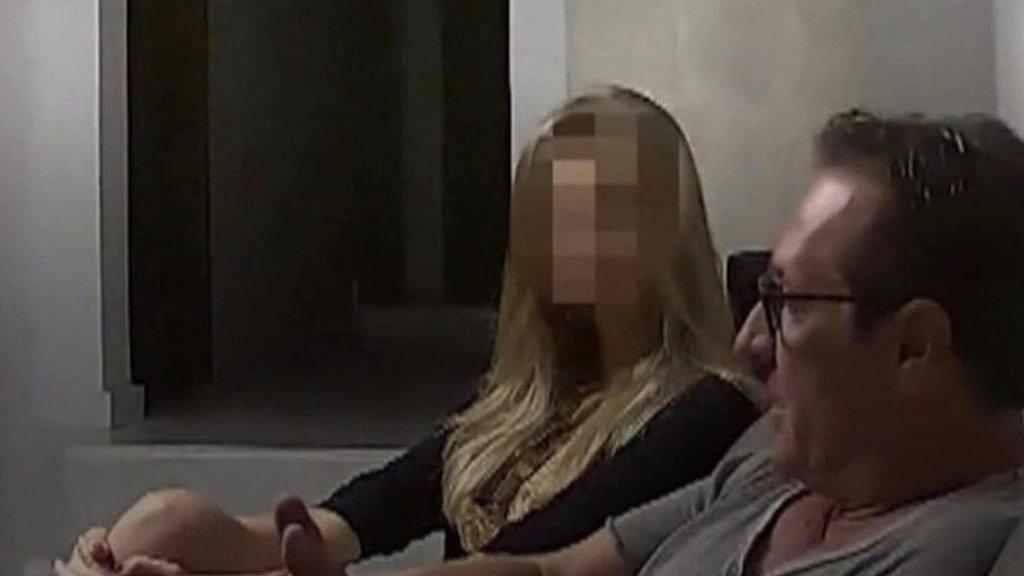
- Published30 March 2023
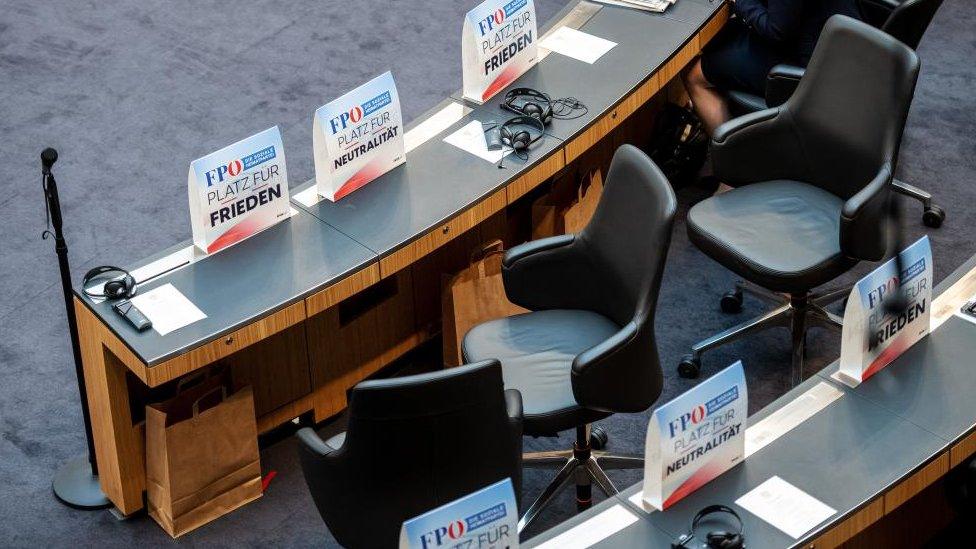
- Published18 August 2023
